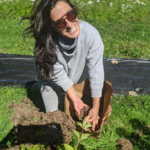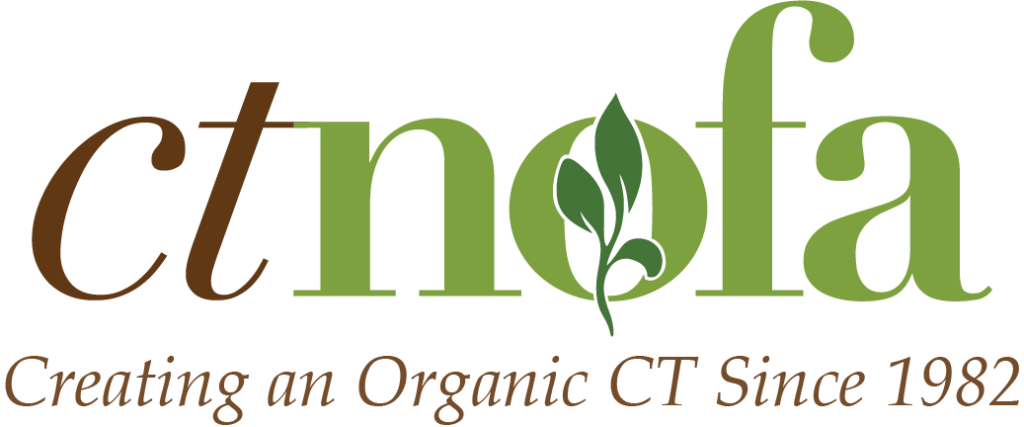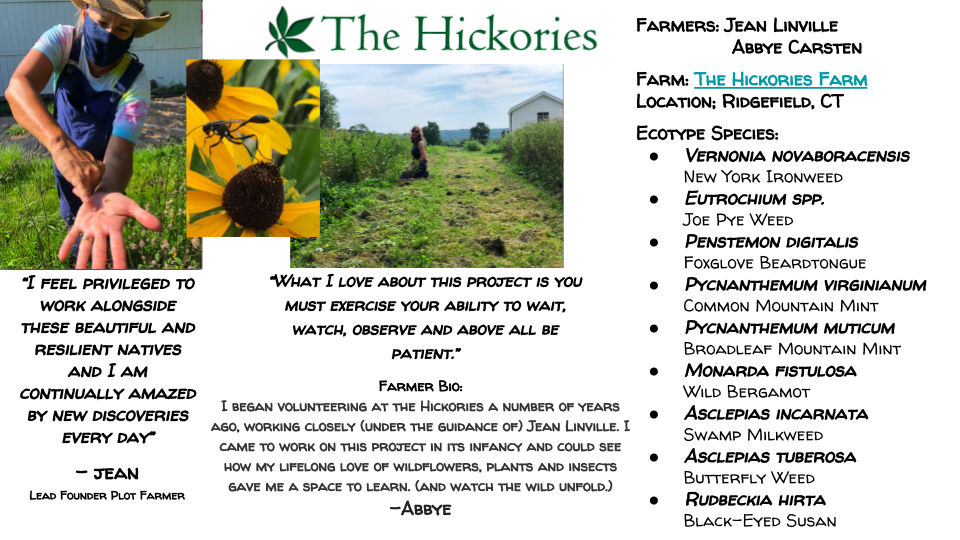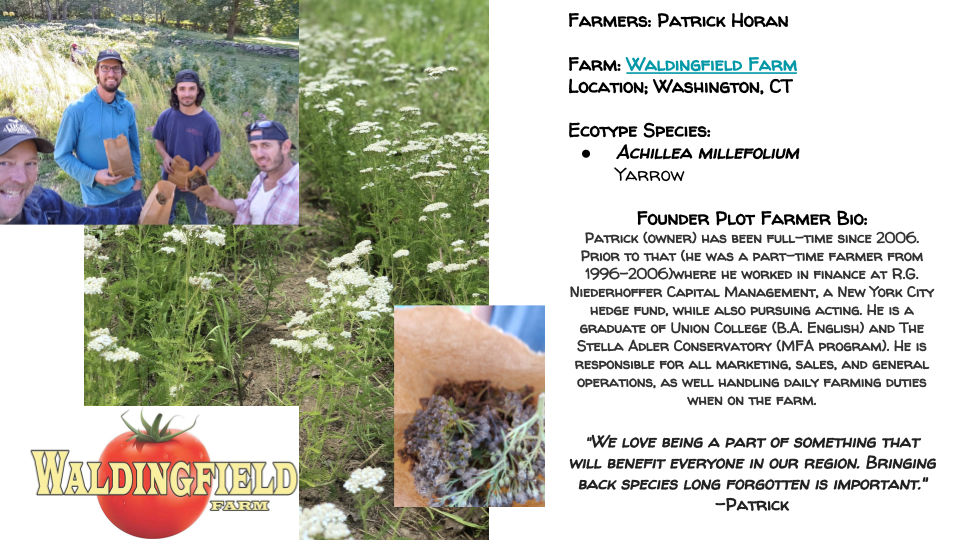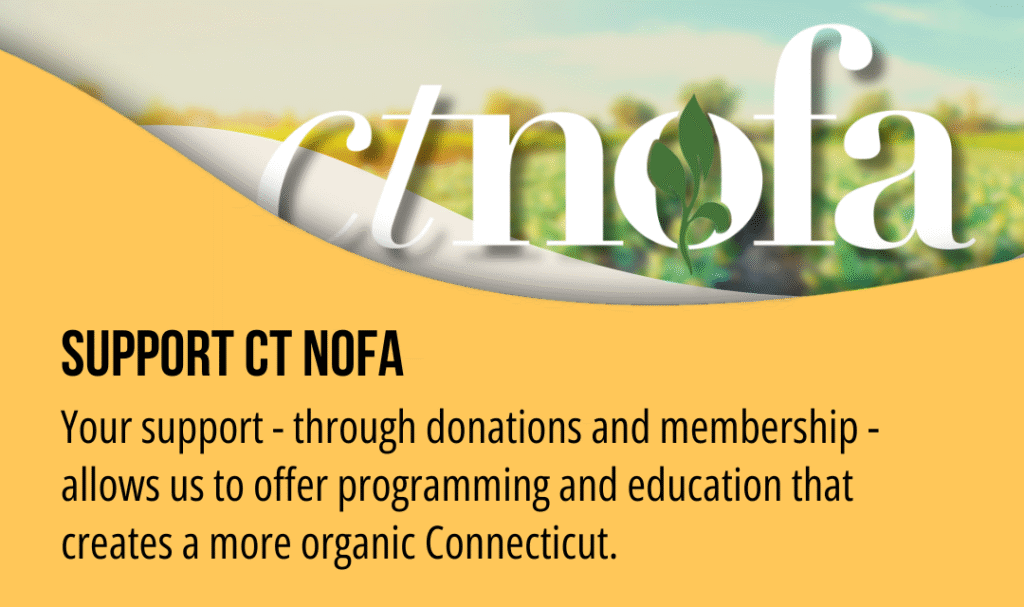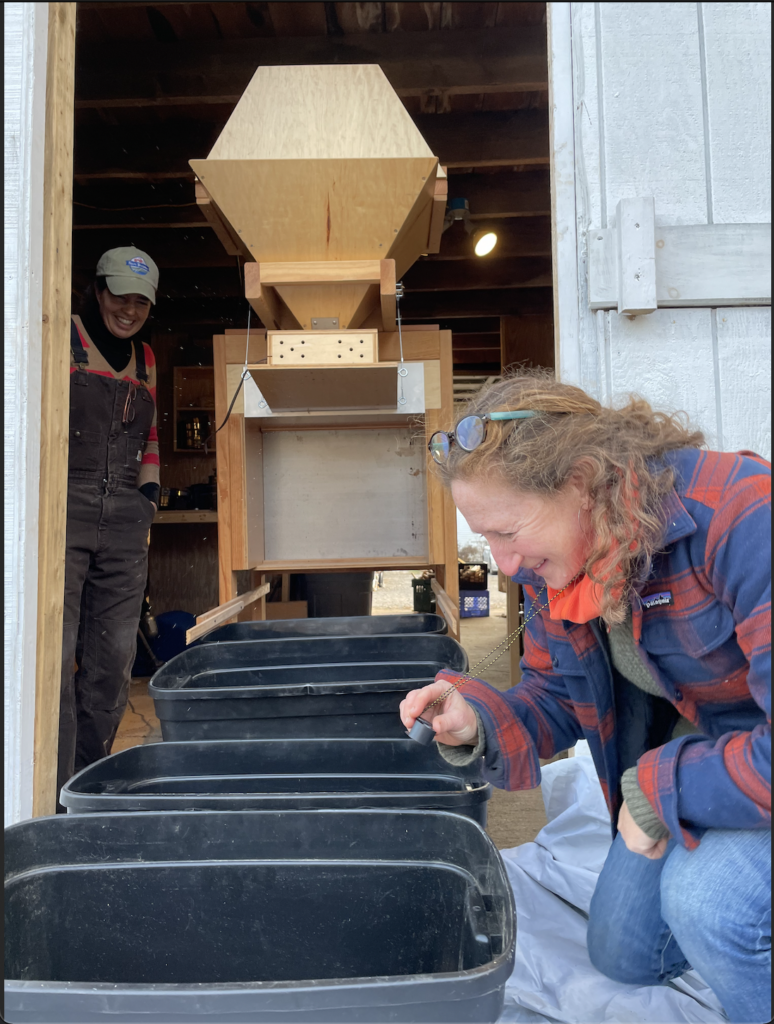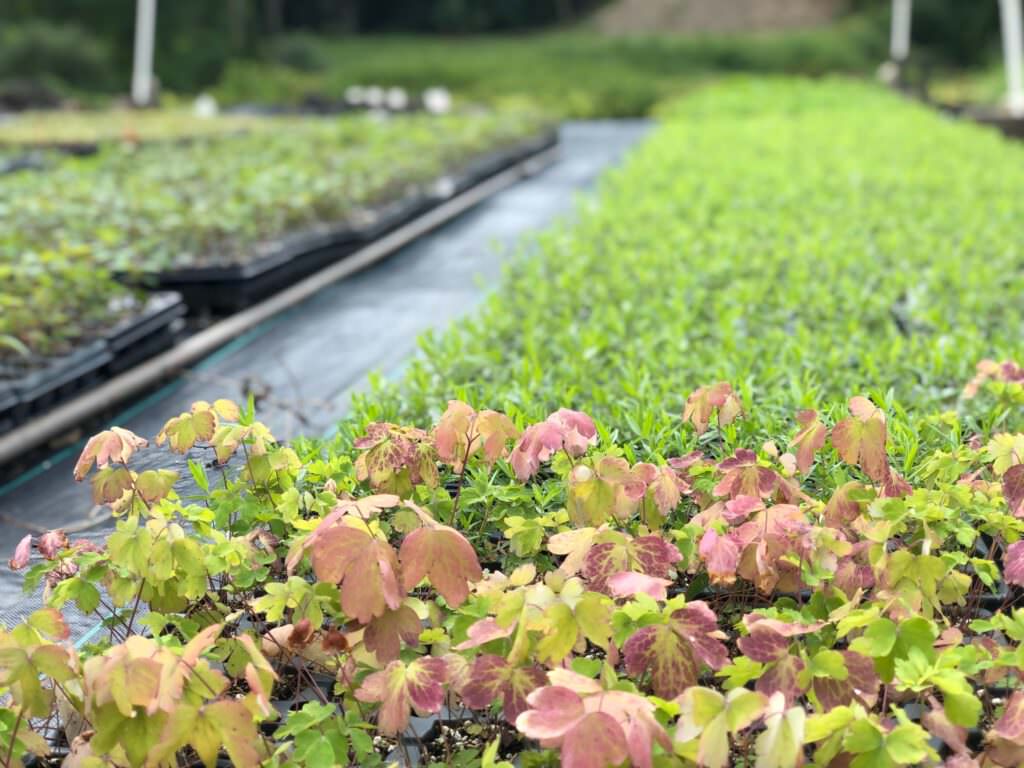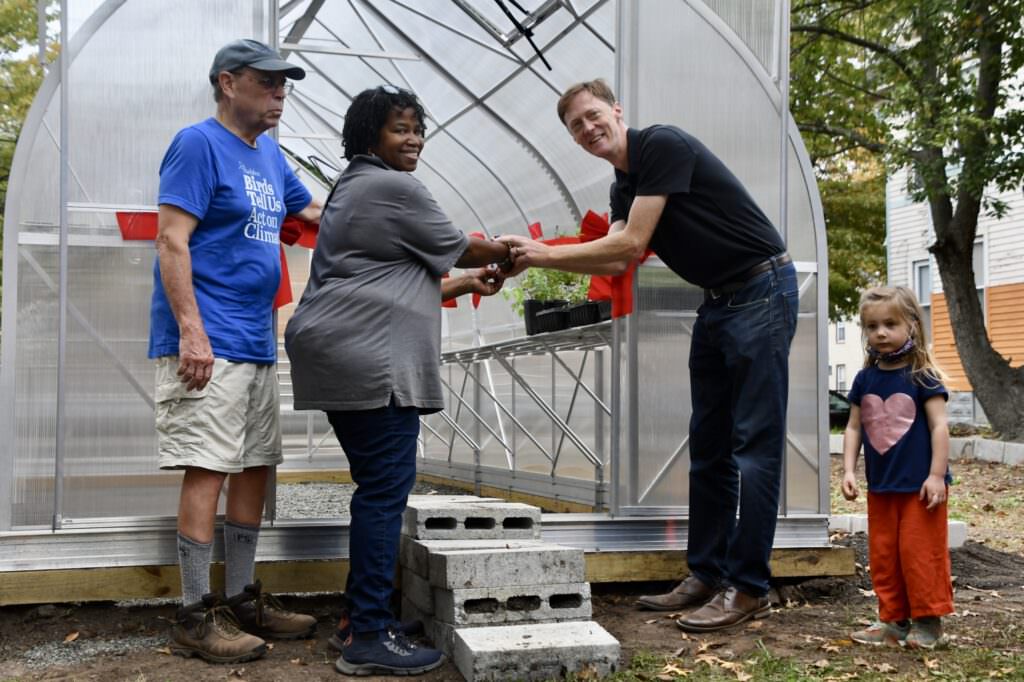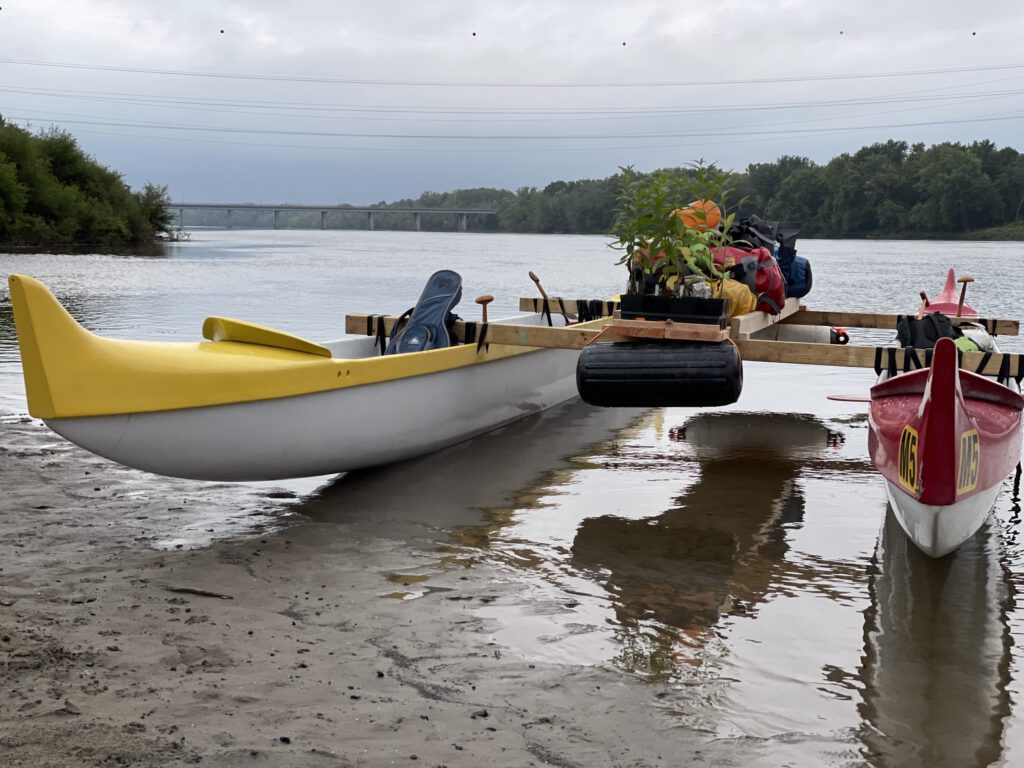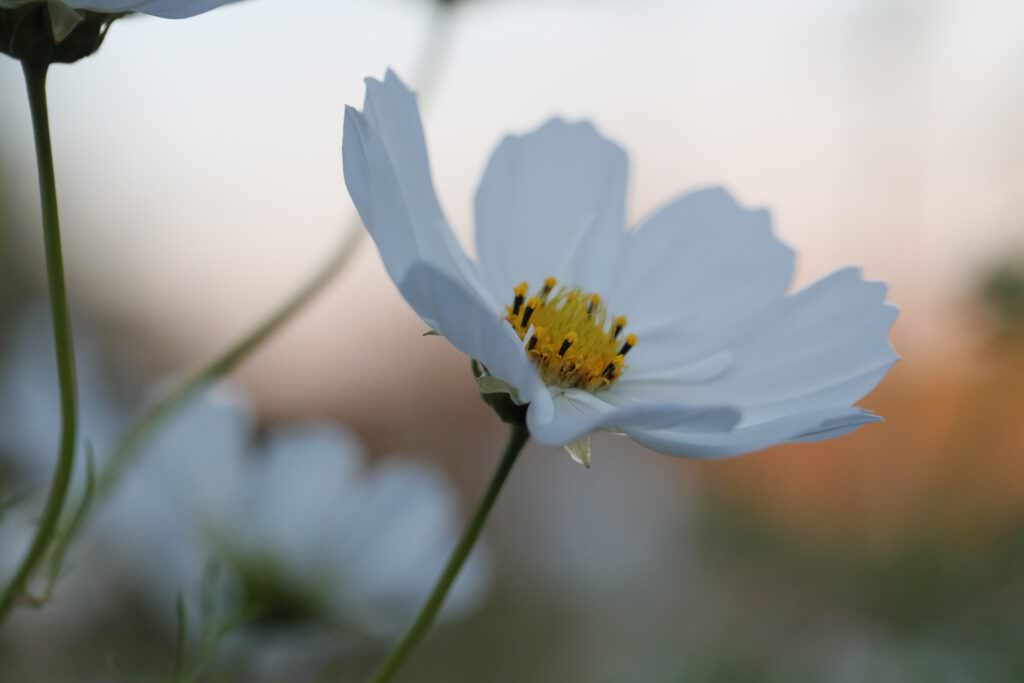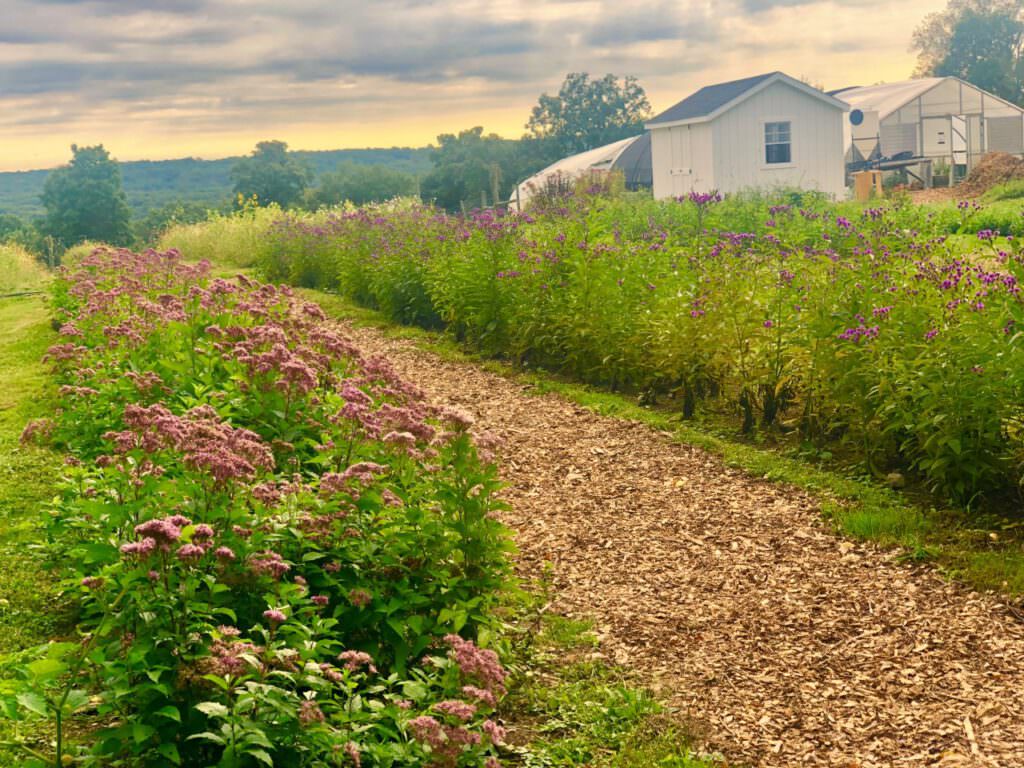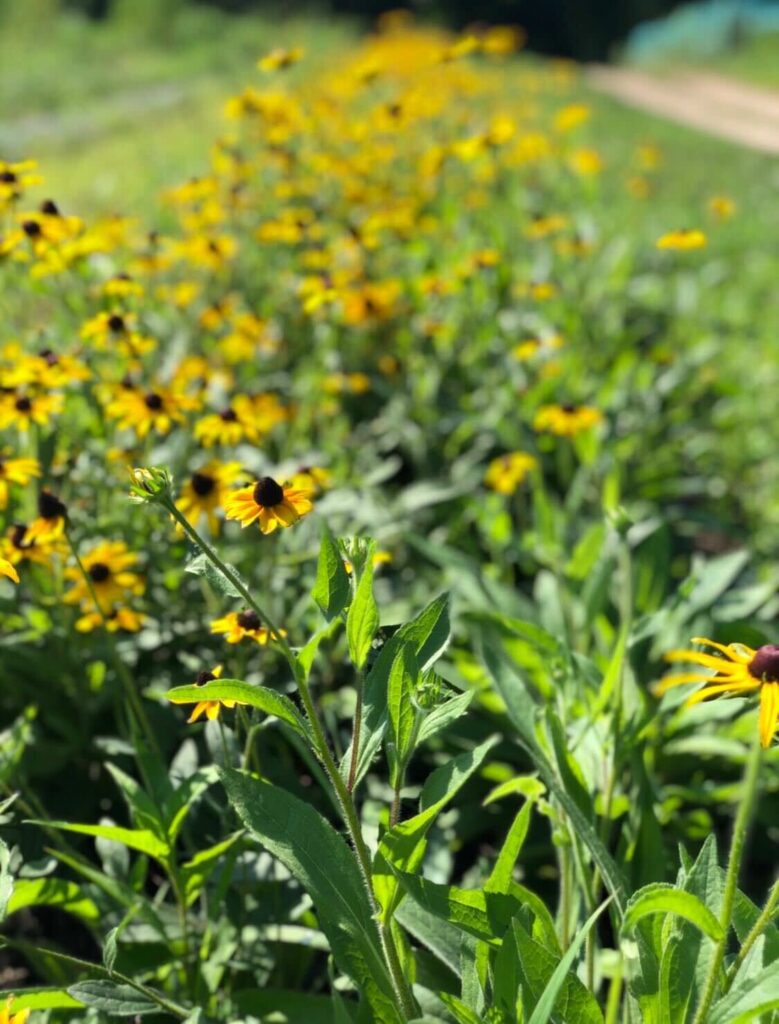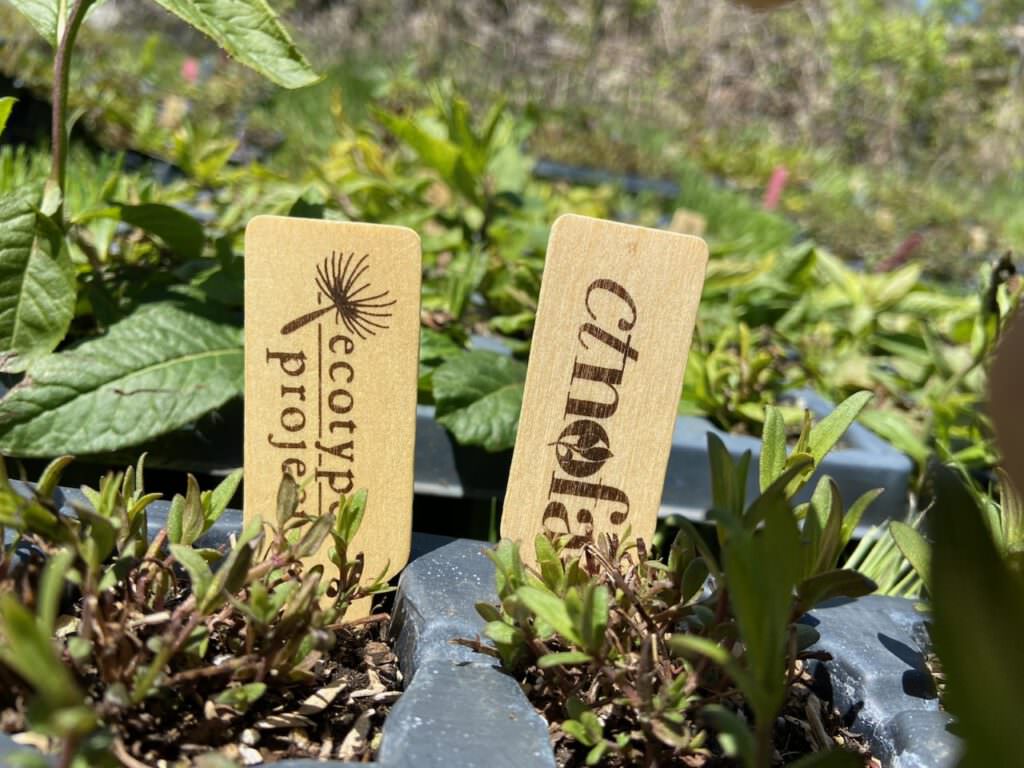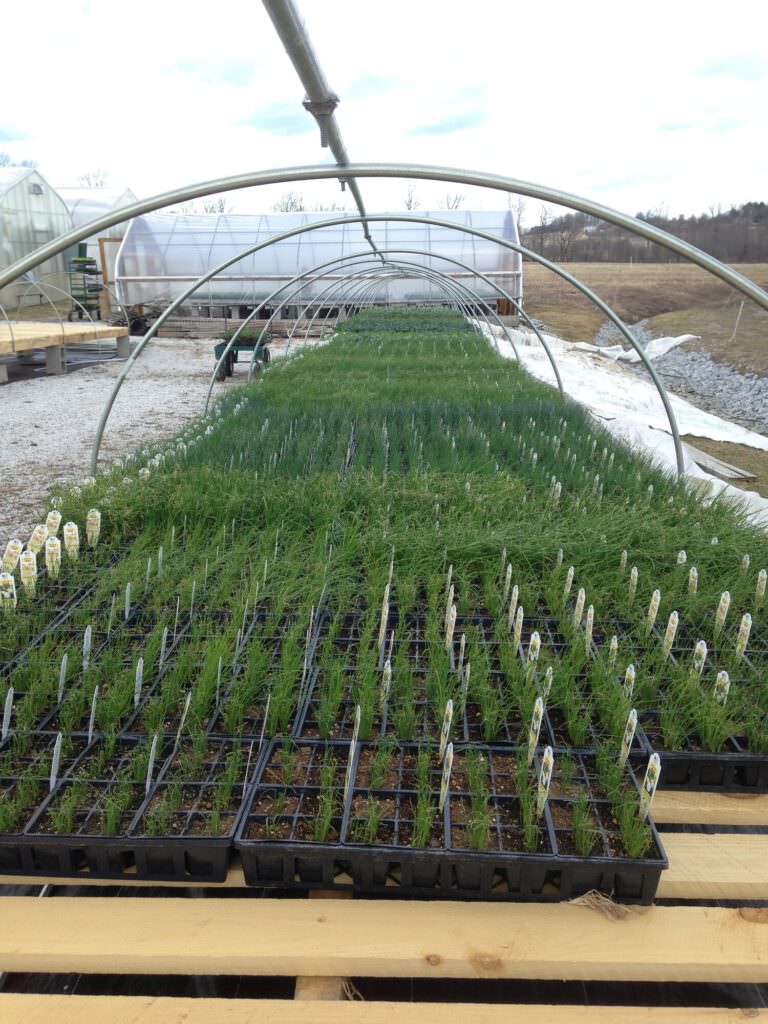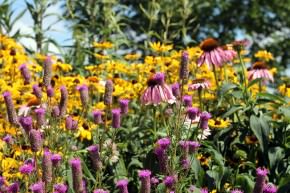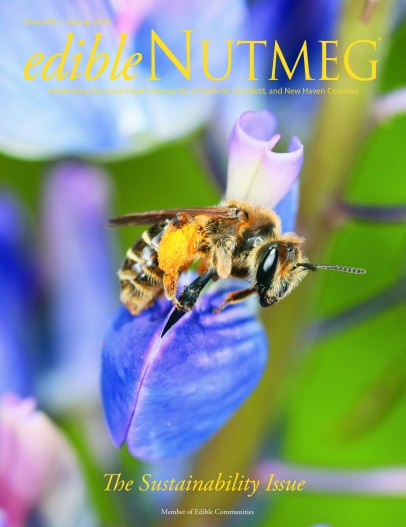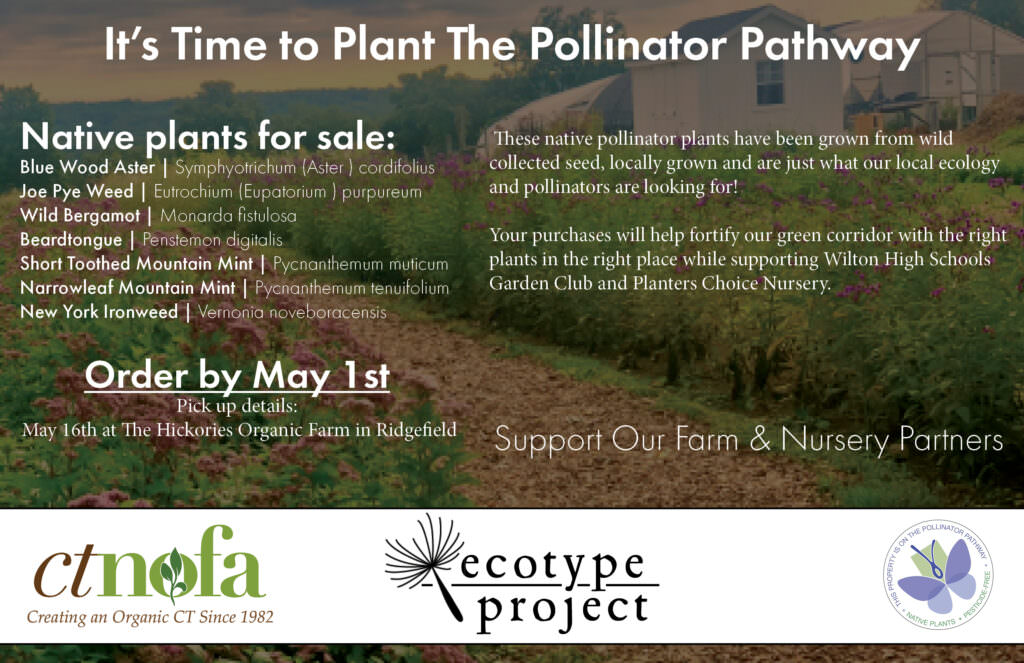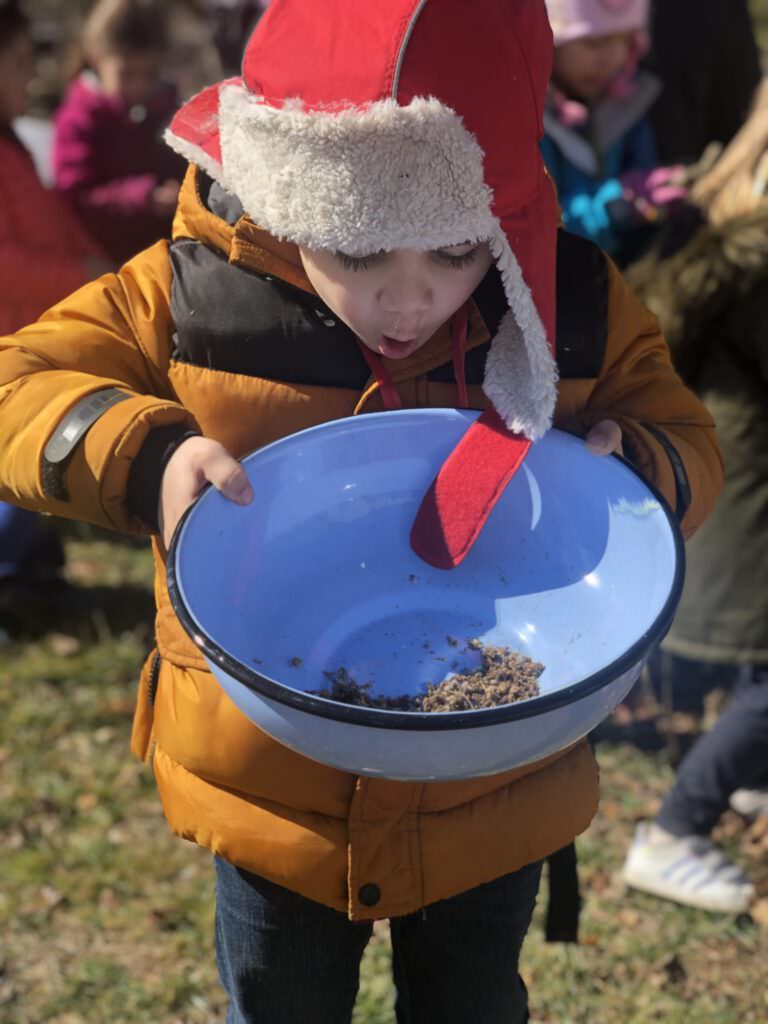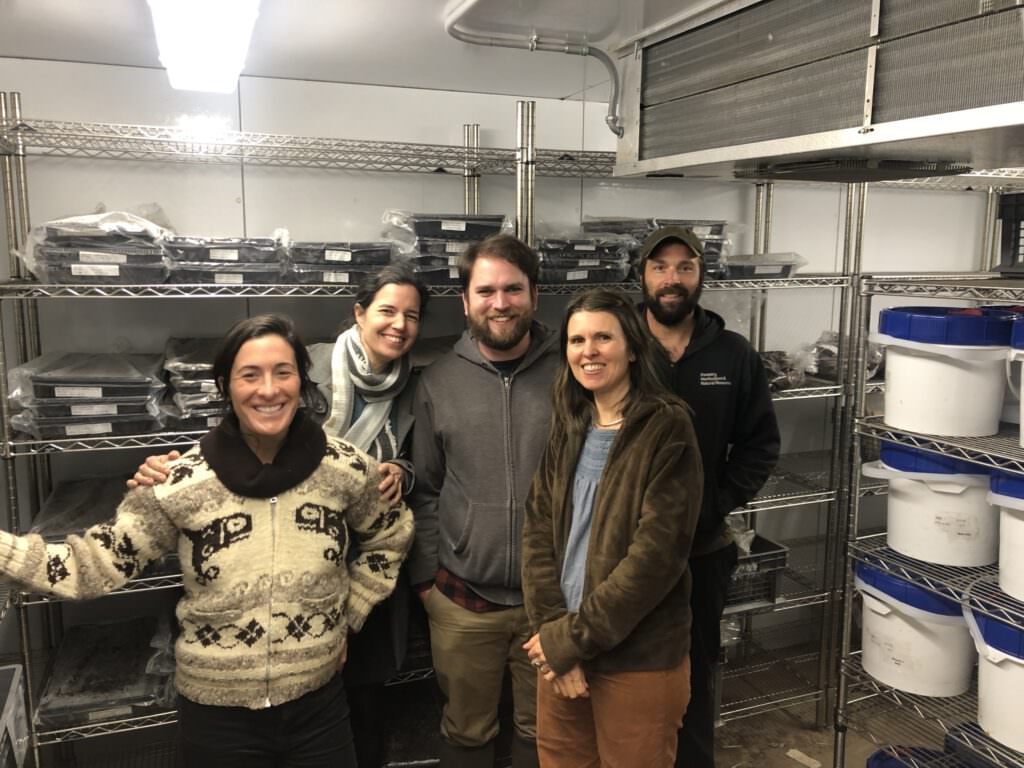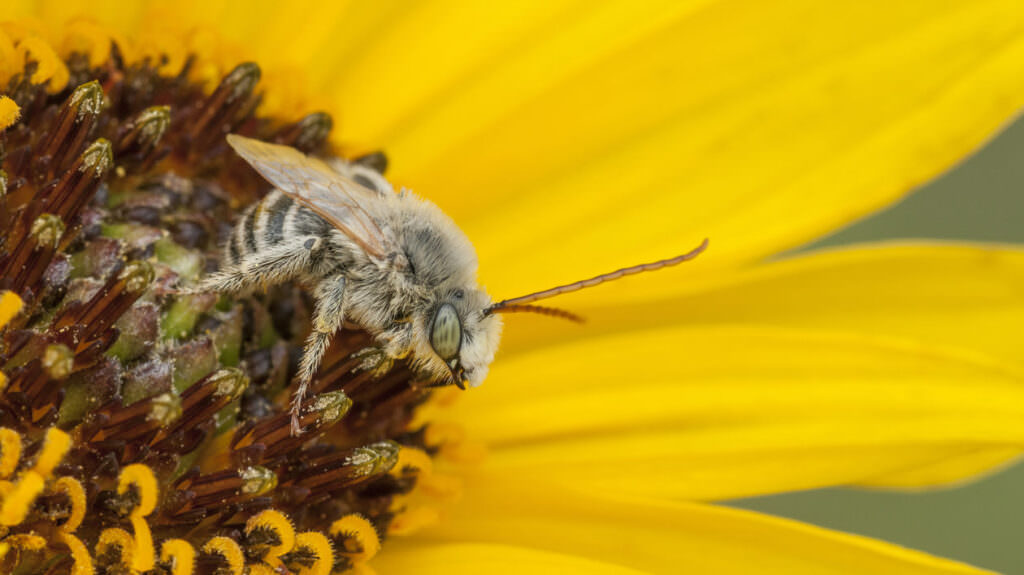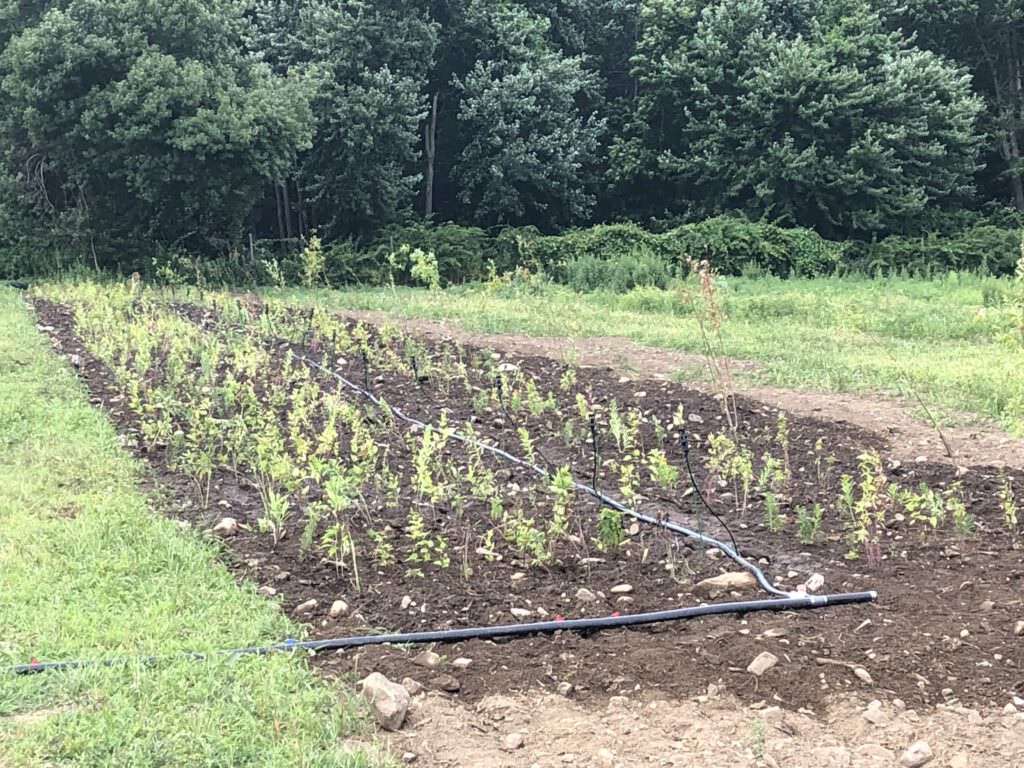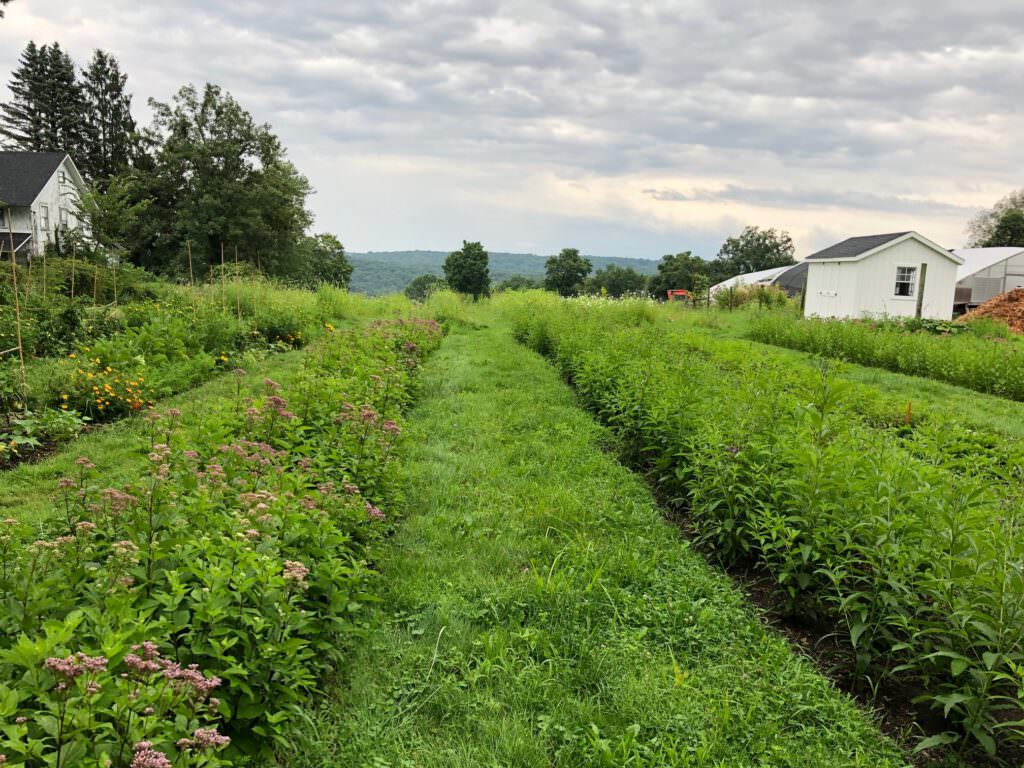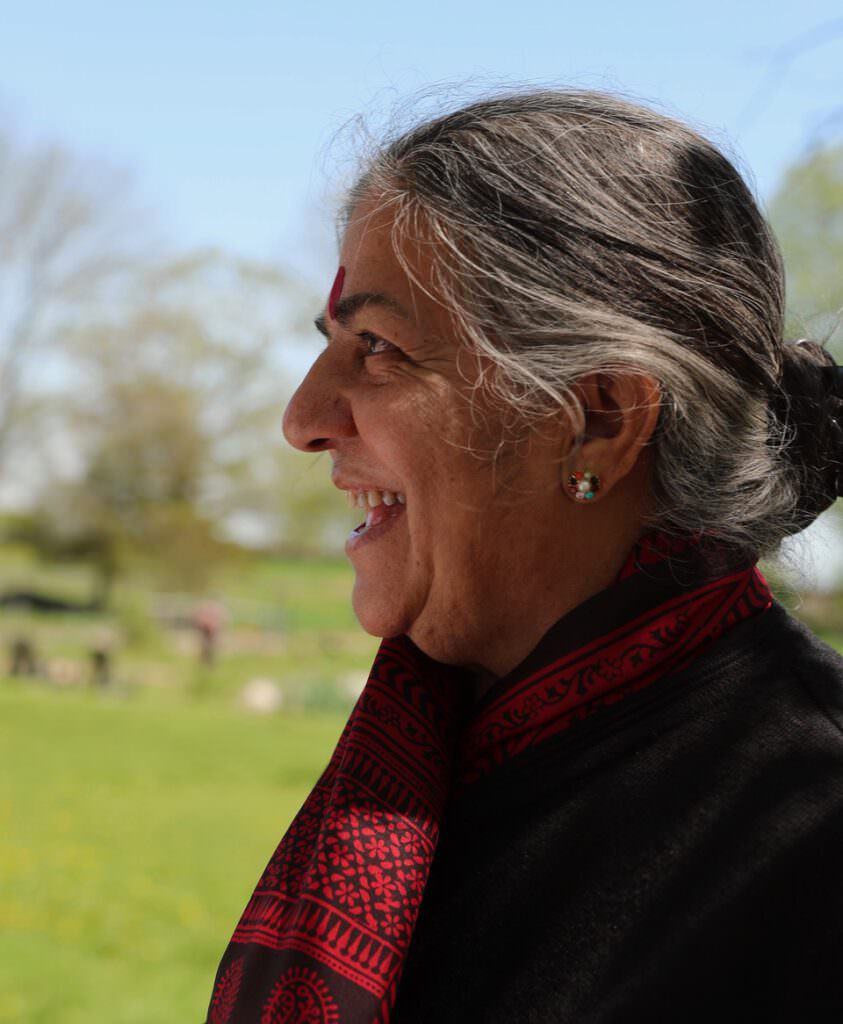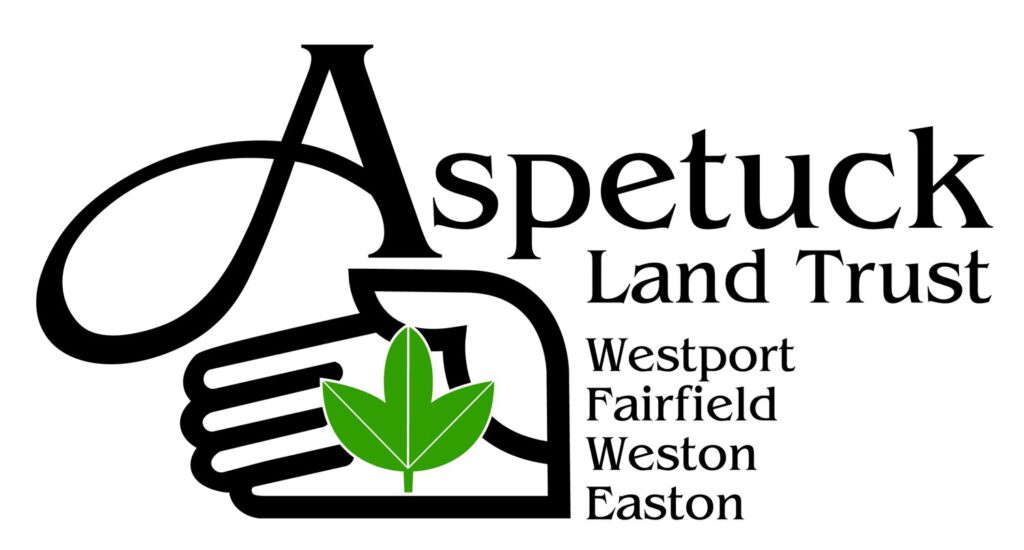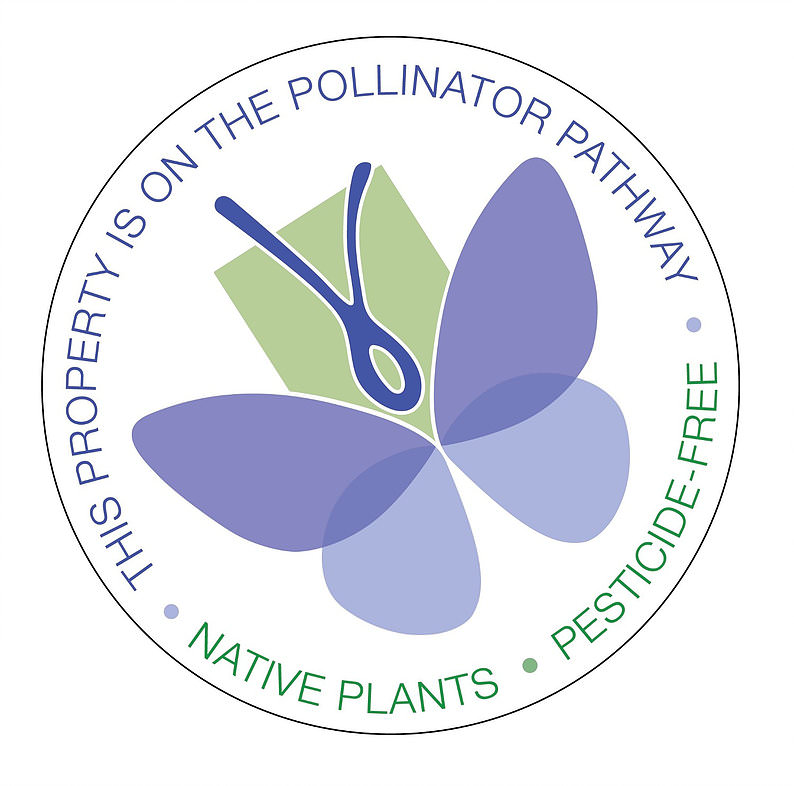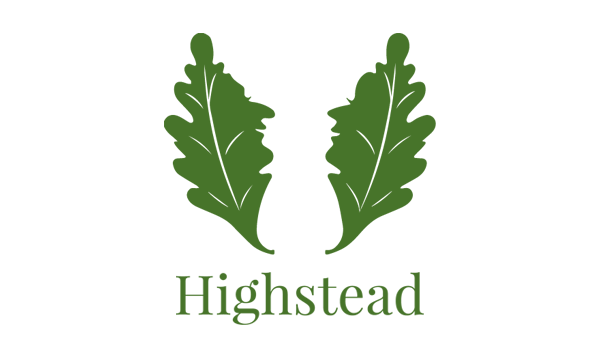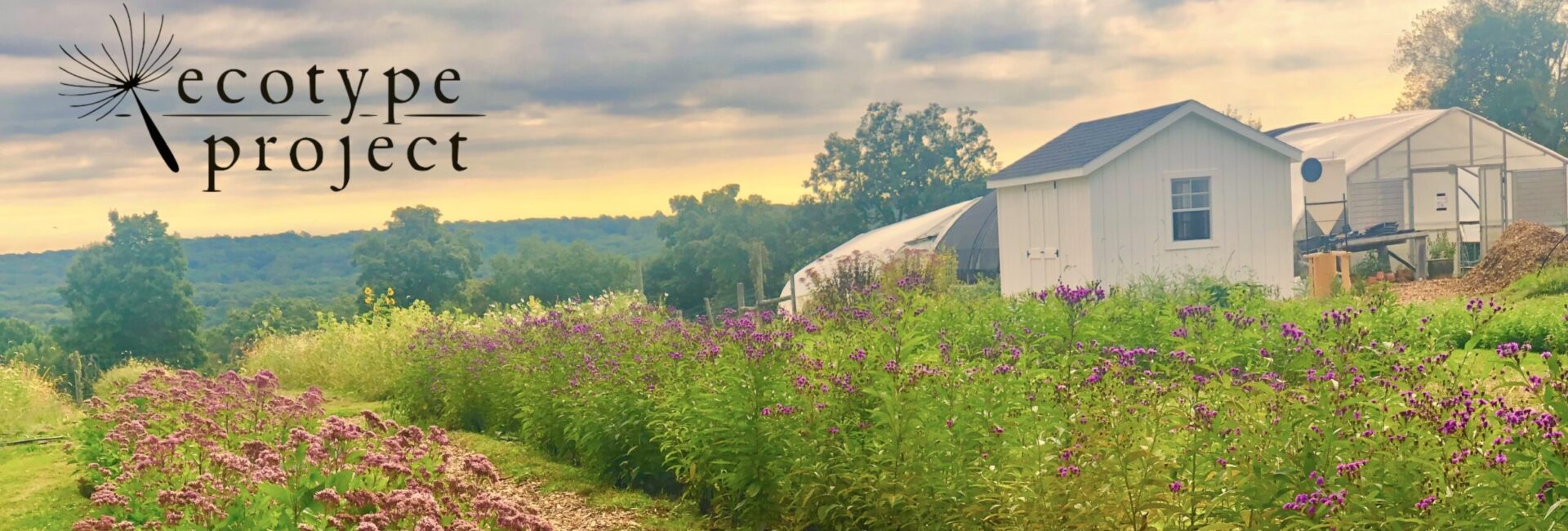
The Ecotype Project
A PLANT AND PLACE BASED APPROACH TO LAND STEWARDSHIP AND AGRARIAN RESILIENCE IN THE NORTHEAST
The Problem
CT’s changed landscape (from meadow to lawn, from farmland to subdivision) poses a threat to the food production that remains in farms and gardens. Crops rely on a robust population of pollinators to bring them into existence. The pollinators rely on native plants. With 19% of CT’s native plants listed as endangered and the remaining populations in declining numbers, we are facing a precipitous decline in our pollinator populations.
Our Response
We must restore native habitat to safeguard our food system. Our initiative exists at the intersection of farms, gardens, land trusts, and public lands: we aim to increase the number of native plants growing in our region. To do this, we are growing seed crops of Connecticut’s native pollinator plants, wild collected from our open-spaces, and bringing them to our nursery growers and homeowners so that we can produce the plants to restore native pollinator habitat.
OUR WORK IS ROOTED ACROSS 6 COMMUNITIES OF DIVERSE LAND MANAGERS
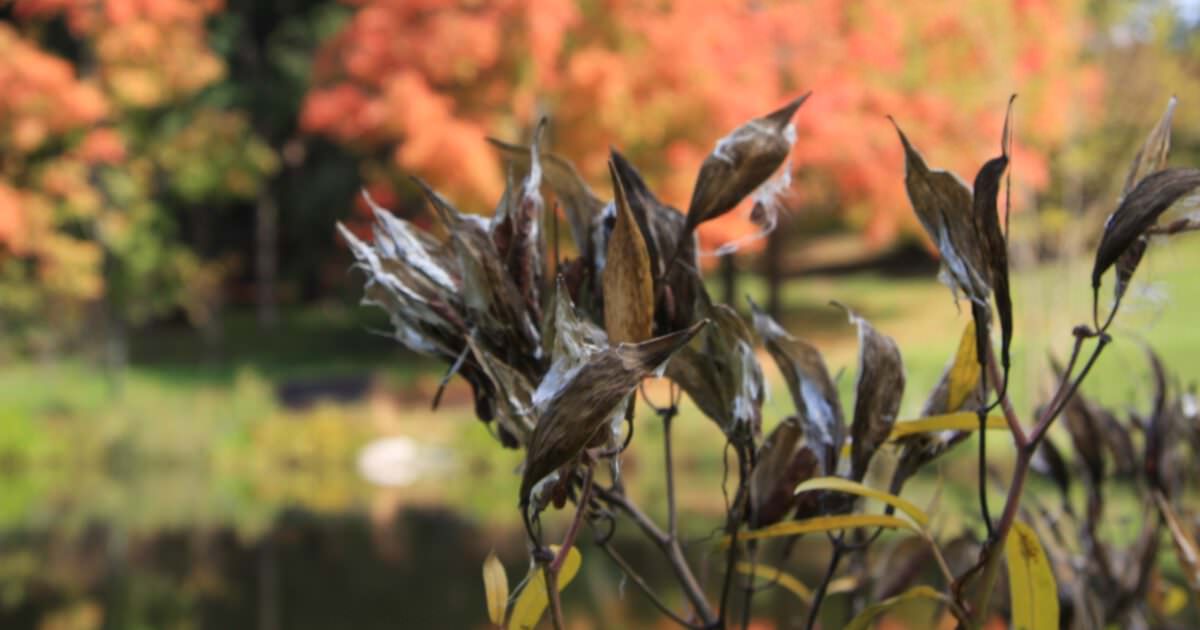
Botanists
Step 1: Following the Seeds of Success protocols, our botanists wild collect seed of our native plants uniquely suited for our ecoregion.
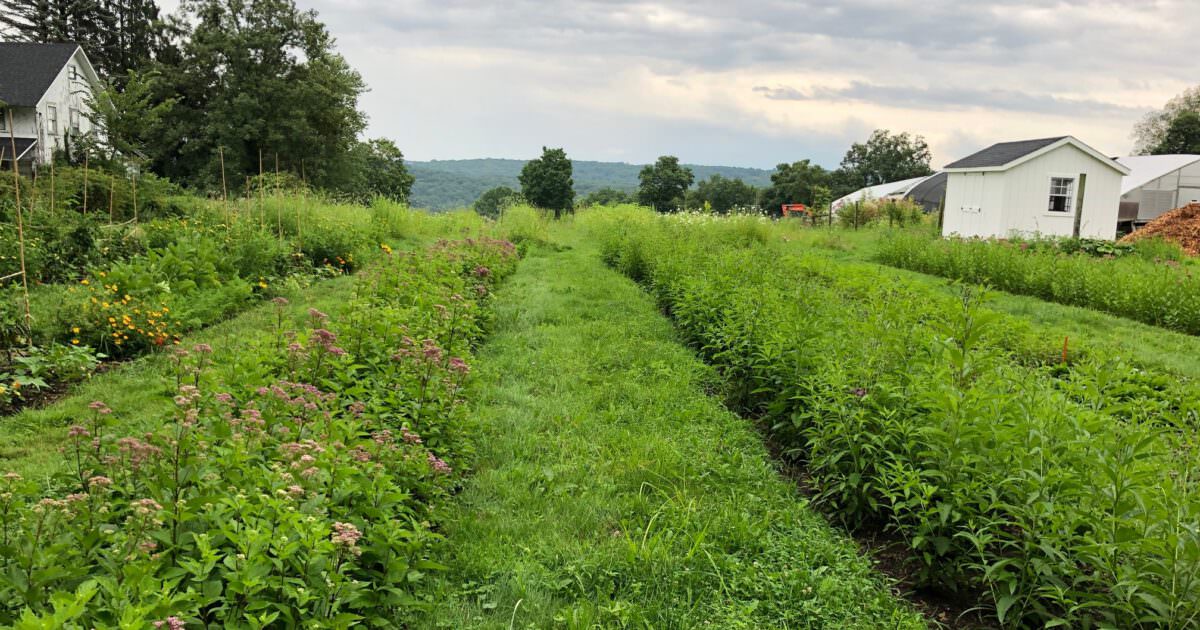
FARMERS
Step 2: Organic farmers grow out the wild collected seed in “Founder Plots” to amplifying the production of this special ecotype seed. From these plots we can harvest hundreds of thousands of seeds each year.
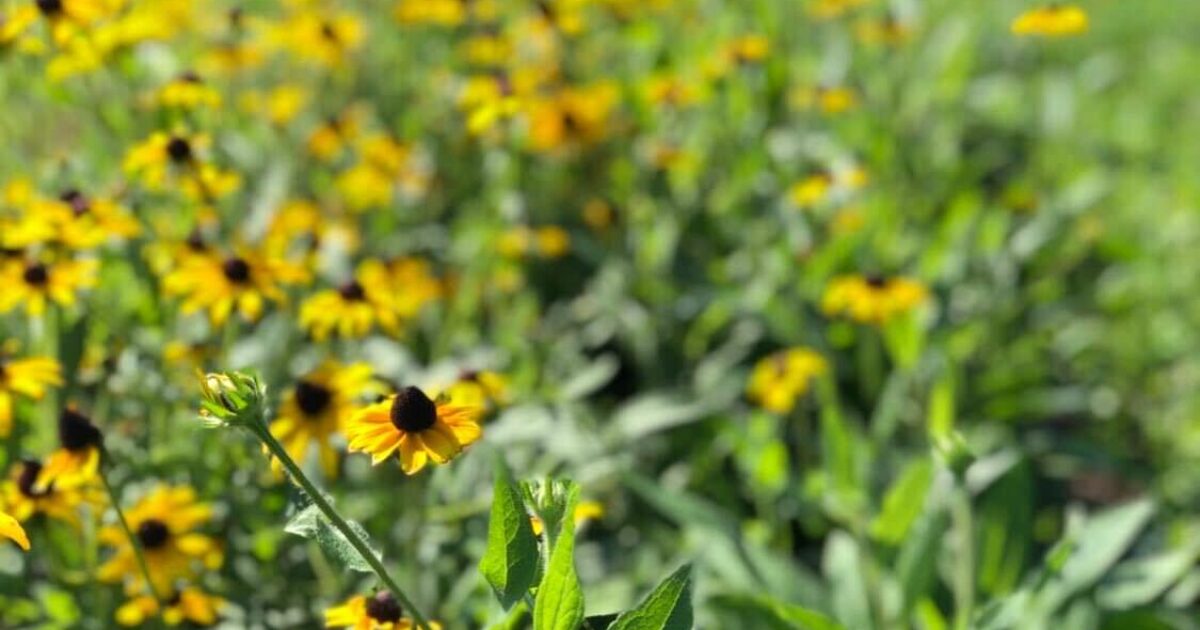
Seed Savers
Step 3: Seed savers harvest, clean, count, and prepare the seed for nursery production.
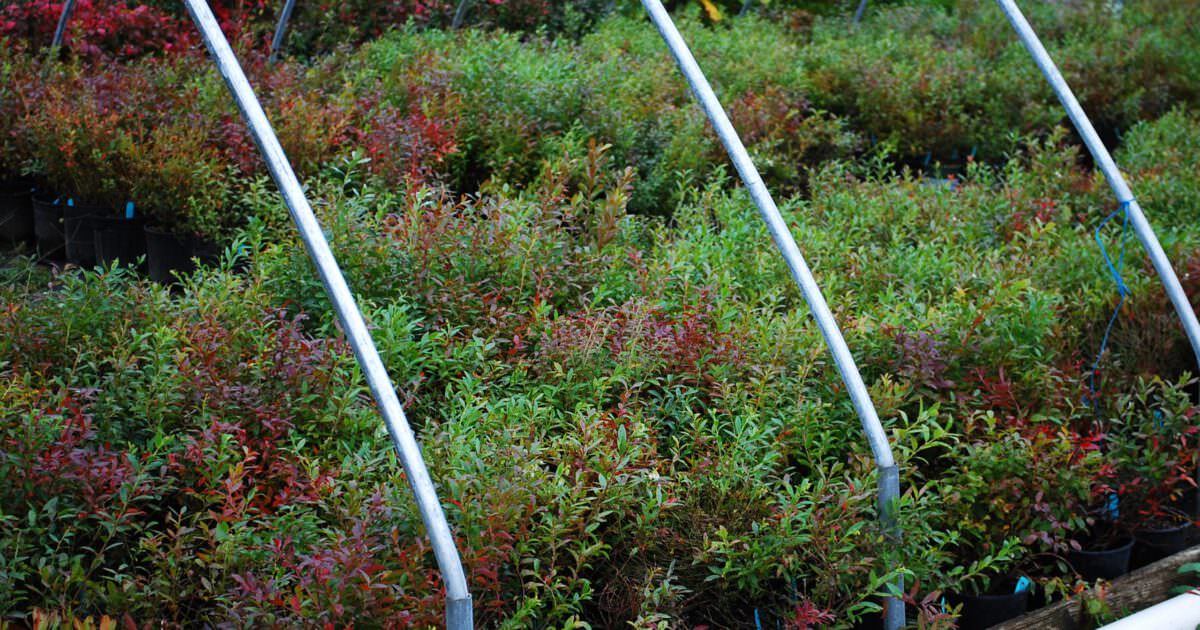
Nurseries
Step 4: Local nurseries can use the seed to grow out tens of thousands of “plugs” each year for wholesale and retail sales.
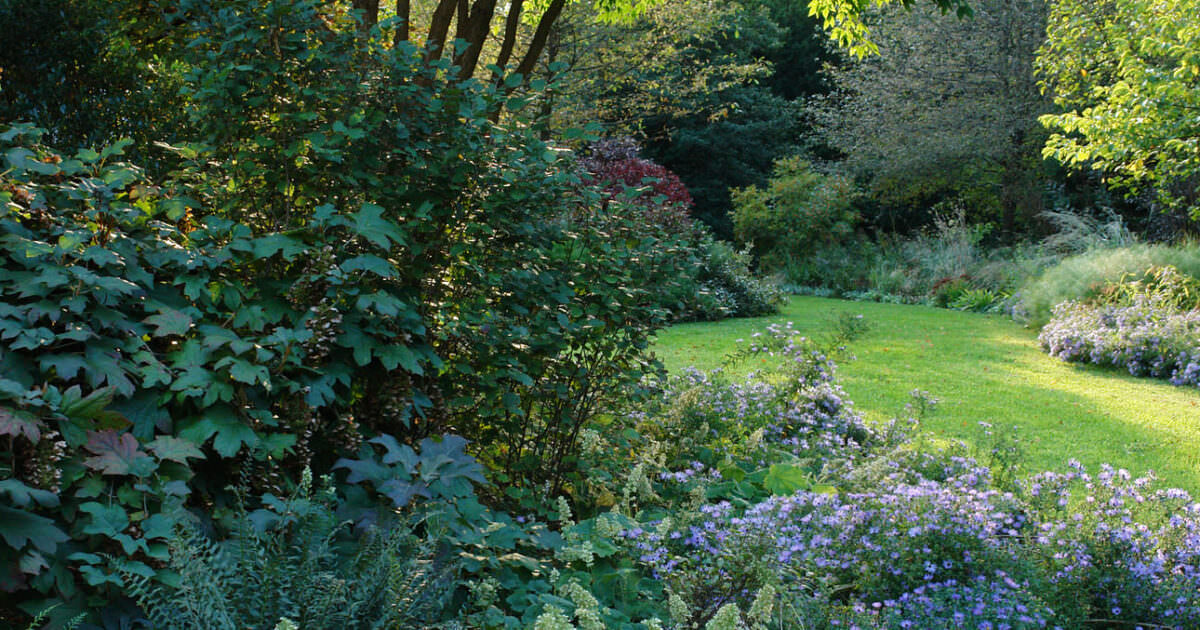
Landscapers & Home Owners
Step 5: Thousands of Accredited Organic Land Care Professionals trained and tested in organic landscaping practices support the development of The Ecotype Project and champion the re-wilding of our landscapes to better support the ecological services needed on all working land.
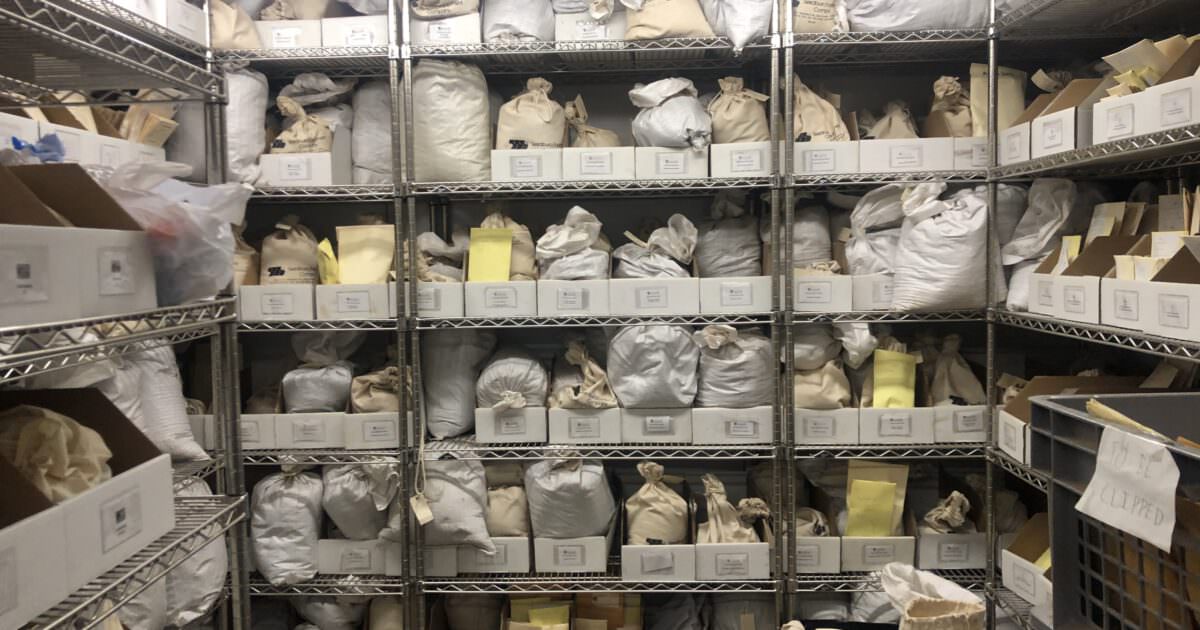
RESTORATION SCALE CONSERVATIONISTS
Step 6: The CT Native Plants Working Group welcomes a diverse group of partners to work on “scaling up” seed production as well as providing expertise and oversight to The Ecotype Project as it develops.
GETTING STARTED TOOL KIT
Protocols
Logs
SPECIES IDENTIFICATION
